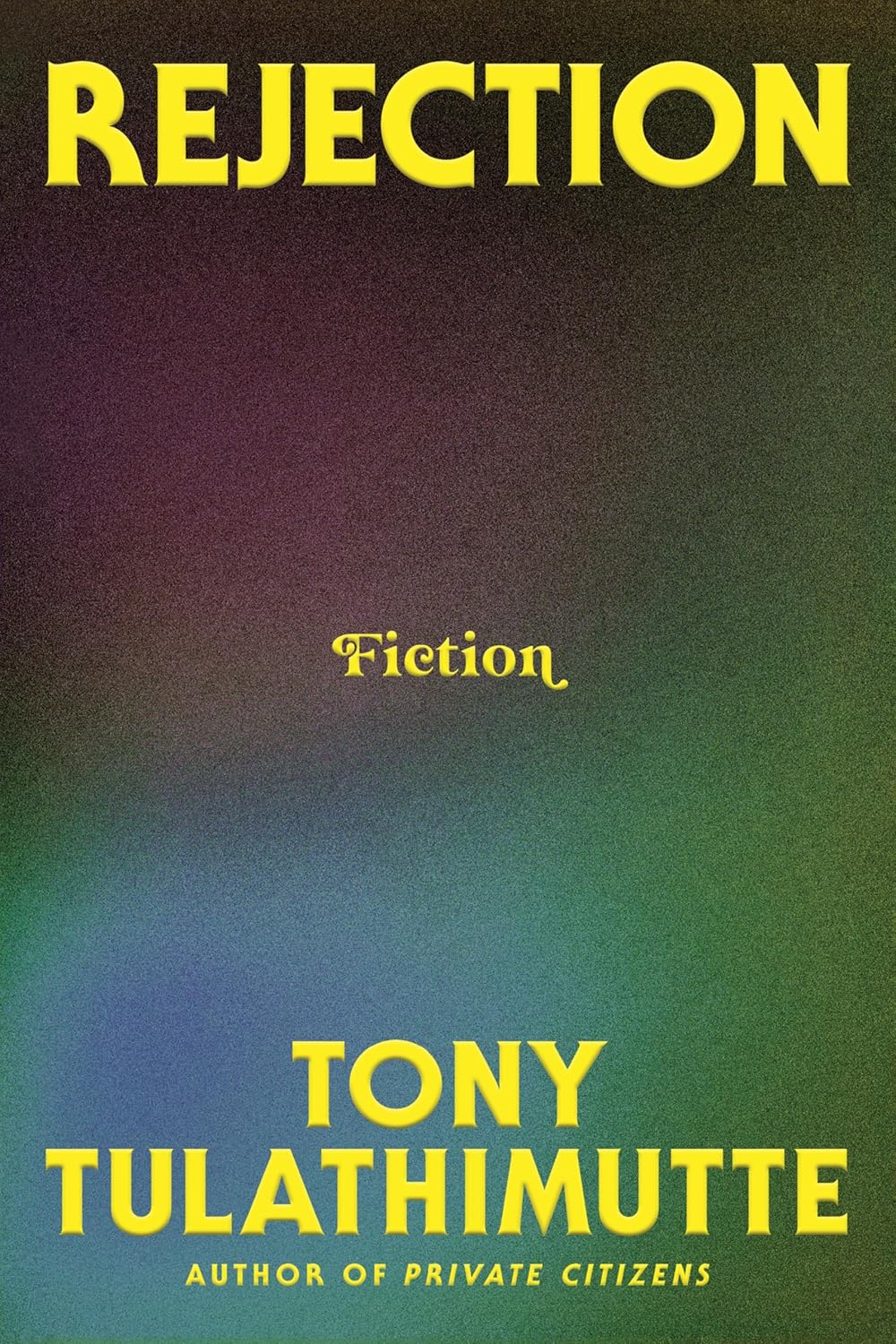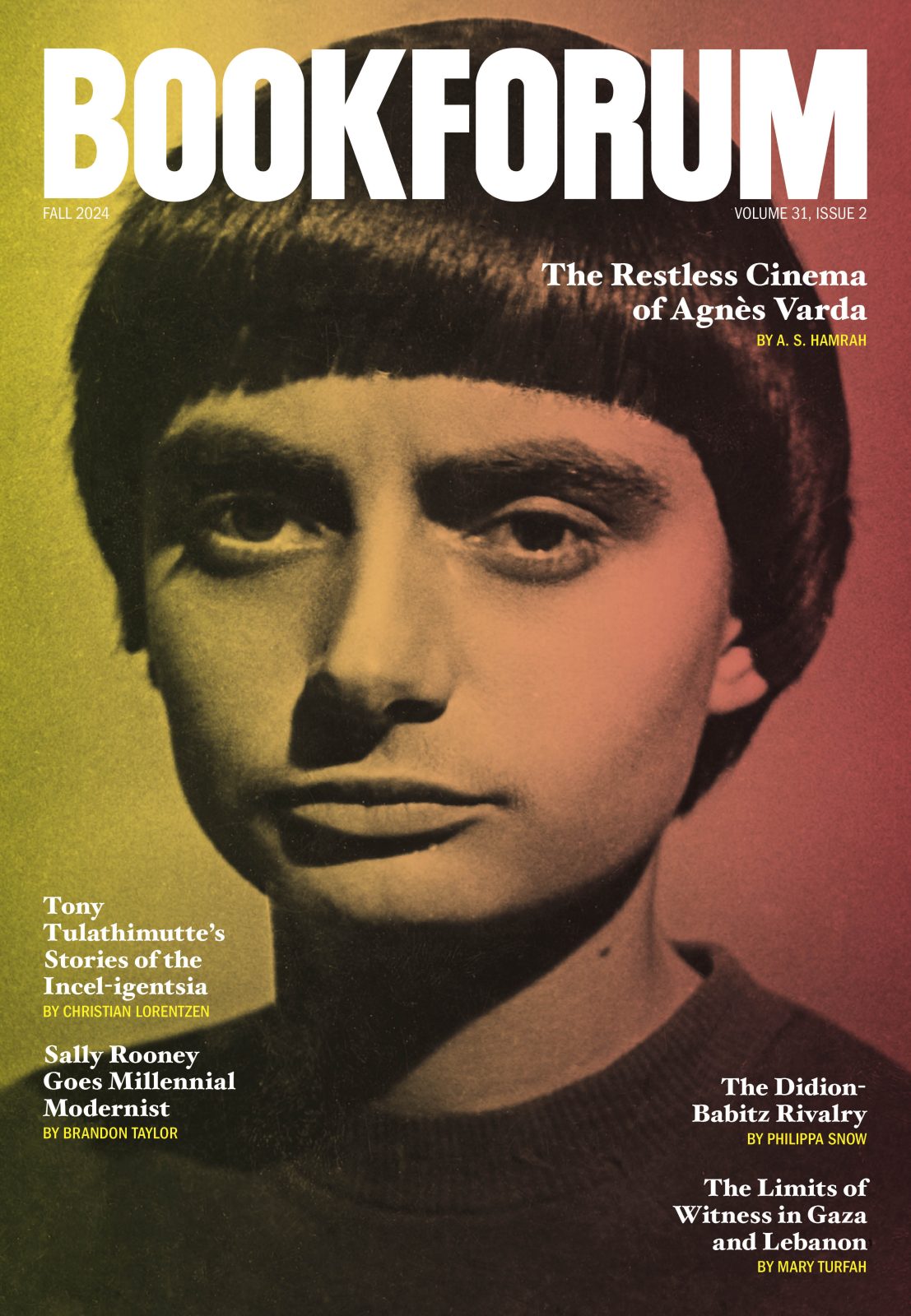
I DON’T REMEMBER WHEN I first heard the term “incel” but I do recall my reaction: I don’t want to know about these guys. You feel sympathy for lonely people, of course, but it would seem that their constitution as a class or identity category in the internet age, while perhaps inevitable, can only compound the misery and increase the rage, to say nothing of the occasional outbursts of violence. You hope that they quiet down and get their shit together (not in a Jordan Peterson way) and come back when they’ve stopped being angry about the wrong things, or better yet that they just go on to lead peaceful private lives with friends, lovers, spouses, or families, if that’s what they want so badly. Instead, the rest of us have been subjected to an endless stream of tedious journalistic and sociological examinations of these sad souls, their grievances, their traumas, their delusions, even their quixotic plastic surgeries. I can’t claim to be an expert on or even a regular reader of the genre, except when these accounts overlap with profiles of mass shooters. But before these superfluous men were treated as a class, they were a literary and cinematic staple, from Notes from Underground through Taxi Driver to Brief Interviews with Hideous Men.
Tony Tulathimutte’s Rejection: Fiction owes a debt to the last of those works, both formally and in terms of its high level of comic self-consciousness. It consists of seven sections: five discrete but linked narratives about characters experiencing various sorts of rejection—some of them self-inflicted, others not at all—and two shorter pieces that serve as thematic codas. Tulathimutte’s excellent first novel, Private Citizens,established him as a chronicler of his generation—millennials of the highly educated, very online variety—and was structured along the lines of Jonathan Franzen’s The Corrections,with several entwined narrative arcs about former undergraduate dormmates rising, swooping, and at last resolving in the direction of redemption, as its four characters recover from their various breakdowns together. The connections between characters in Rejection are slighter—even in the case of lovers (not quite the right word for what transpires) and siblings—and the ends they come to are not happy or redemptive: they vanish, disappoint, suffer humiliation, commit mass homicide. Tulathimutte has said he thought of it as a novel while he was writing, and the book does have the thrust of novelistic unity.
The sequence of sections is crucial, proceeding from the least to the most sympathetic characters, especially if you take the author to be the subject of the final two codas, as he explicitly suggests we should, though individual reactions may vary. Rejection opens with “The Feminist,” the story of a white man with narrow shoulders and next to no sex life over the course of his adulthood. His loneliness is compounded by his dedication since high school to a superficial version of feminism that doubles as a (failed) mating strategy. The story ends, somewhat predictably, with him entering a popular restaurant in a ski mask to take his revenge on the world. Its title recalls David Foster Wallace’s “The Depressed Person,” about a young woman trapped between her own despair and the discourse of therapy, a situation complicated by her own therapist’s suicide mid-story. Both stories derive some of their force and humor from naming their central characters not with proper names but after abstractions, as if they were case studies and their conclusions logically inevitable. In Rejection, there are two broad ideas at play. One is familiar from the novels of Michel Houellebecq: that the liberalization of sexuality leads to a market for sex that will inevitably create a class of losers. The other is native to the online zones of the United States of the 2010s: that ideology can be adopted as a lifestyle and that “virtue” is not something to be pursued for its own sake but will also get you what you want—because you deserve it.
All of the characters in Rejection make some version of this mistake, thinking that by a natural arithmetic the sum of their behavior and choices will yield them a commensurate amount of happiness. Part of the mistake is confusing the online world with reality, thinking that a quantity of likes can yield a quantity of love. Alison, a young white woman, appears in three of the stories, first relieving the Feminist of his virginity in their early thirties (she views him as “weenily deferential” but thinks to herself: “at least I’m in a position to do the pitying for once”); then, as the subject of the story “Pics,” obsessing over a friend she sleeps with casually, who then isn’t interested in carrying on with her; and in “Our Dope Future” becoming the object of a ludicrous and manipulative campaign of courtship by a tech entrepreneur whose delusional romantic strategies are as absurd as his many business plans for failing start-ups.

Tulathimutte’s deployment of absurdity and hyperbole has mixed results. The Feminist’s rigorous adherence to gender-based self-deprecation works as satire until his ideals morph into their opposites—misogyny and homicidal rage—but a few of the details in “Pics” are just randomly quirky. Alison adopts a raven called Pootie that turns out to be a terrible pet she’s basically incompetent to care for. The bird alienates the members of a women’s group chat she invites over for a small party, whose patience with her has already been tested by her racist remarks about her unrequited beloved’s new girlfriend, a younger Asian woman. Comedies of manners about real life thrive on subtlety, and at times Tulathimutte, like his characters, is more in control when his set pieces are screen-based and not subject to the physical world’s tendencies toward believability. The presence of the raven is a touch too gothic, not that it doesn’t result in a few good jokes: “The main outcome of all this is to make Alison wonder if she should start a podcast, maybe one about owning a raven, though she has nothing to say besides Don’t.”
Given all the trouble these characters have with people they have to be in the same room with, does it make sense that Rejection’s two strongest sections are about characters who escape almost entirely into online realms? The stories concern a pair of Thai-American siblings, Kant and Bee. Kant works in video-game design. After coming out as an adult, he’s picked up by a nice man at the gym, but he leaves him out of shame about his own unspeakable BDSM fantasies. He does give voice to them in the form of instructions for a private maker of pornographic videos, but the concept, a fantasy of largeness told in hilariously minute detail, including a recipe for fake ejaculate of the desired viscosity, would seem to be inherently unfilmable, though there’s always the animation he promises to supply himself. The story is a virtuoso comic performance—perhaps even more so when the author delivers it live, as I heard him do last winter—and evidence that maximalism is Tulathimutte’s best mode.
Or is it? “Main Character,” the story of Bee, assigned female at birth and from adolescence nonbinary until she comes to reject all categories, labels, pronouns, and so on, is Rejection’s longest part and the only one to include an extended treatment of a character’s childhood. It displays Tulathimutte operating in a realist mode with a relatively earnest first-person narration, which is elsewhere deployed for parodic purposes, as in “Our Dope Future” and Kant’s instruction email. Bee is less a reject than someone who has rejected the world, not just the people in it but the ideas and languages it has given us to understand ourselves. Unlike the others we meet in Rejection, Bee doesn’t yearn for love or sex or even friendship but is instead a prankster: Bee claims responsibility for the online culture of callouts and cancellations of the second half of the 2010s, through the creation of countless fake avatars for the purposes of fomenting cascading online spectacles of personal destruction. It’s a daring conceit on Tulathimutte’s part, and it feels churlish to say that I enjoyed the mini-bildungsroman of Bee’s adolescence in Western Massachusetts more than her totalizing prank on the entire internet.
All of this raises the question of whether Tulathimutte’s deeper subjects, beyond the plight of the rejected and the warping dynamics of online pseudo-life, aren’t the limits of realism and fiction itself. He has written elsewhere that “the rejection plot” necessarily involves the counterfactual because the reject is in mourning for a life that never happened and will never happen. Throw in the element of online fantasy and that puts us at a triple remove from the real. Philip Roth wrote of American novelists in 1961 that “actuality is continually outdoing our talents, and the culture tosses up figures almost daily that are the envy of any novelist.” He was talking about characters and events you could read about in the newspaper, hear about on the radio, or see on television. The internet tries to outdo itself every day, and tosses up many figures hour after hour we will soon enough forget and may wish we’d never heard about in the first place. Tulathimutte is aware of this disposability but has nonetheless written a book full of memorable characters. He has put his book in direct competition with the fecund but also vacant online world that is also one of its subjects. He’s aware that the version of the internet he portrays and its significance have been temporary, essential really only to his generation, the millennials, whereas for Generation X (like me) it was never “real” and for the Zoomers—they have TikTok or whatever (the pivot to video during Covid lockdown causes Bee to close up shop). It’s curious that Rejection, a comedy of anti-manners, is the dialectical opposite of the novels of the current most popular anglophone novelist of manners: virtuosic and maximalist on the prose level instead of plain and spare, ironic and cynical in its treatment of politics rather than earnestly gestural, unyielding to fantasies of romantic fulfillment and happy endings. For once, the Americans are more fucked up than the Irish.
Christian Lorentzen is a writer living in New York.
